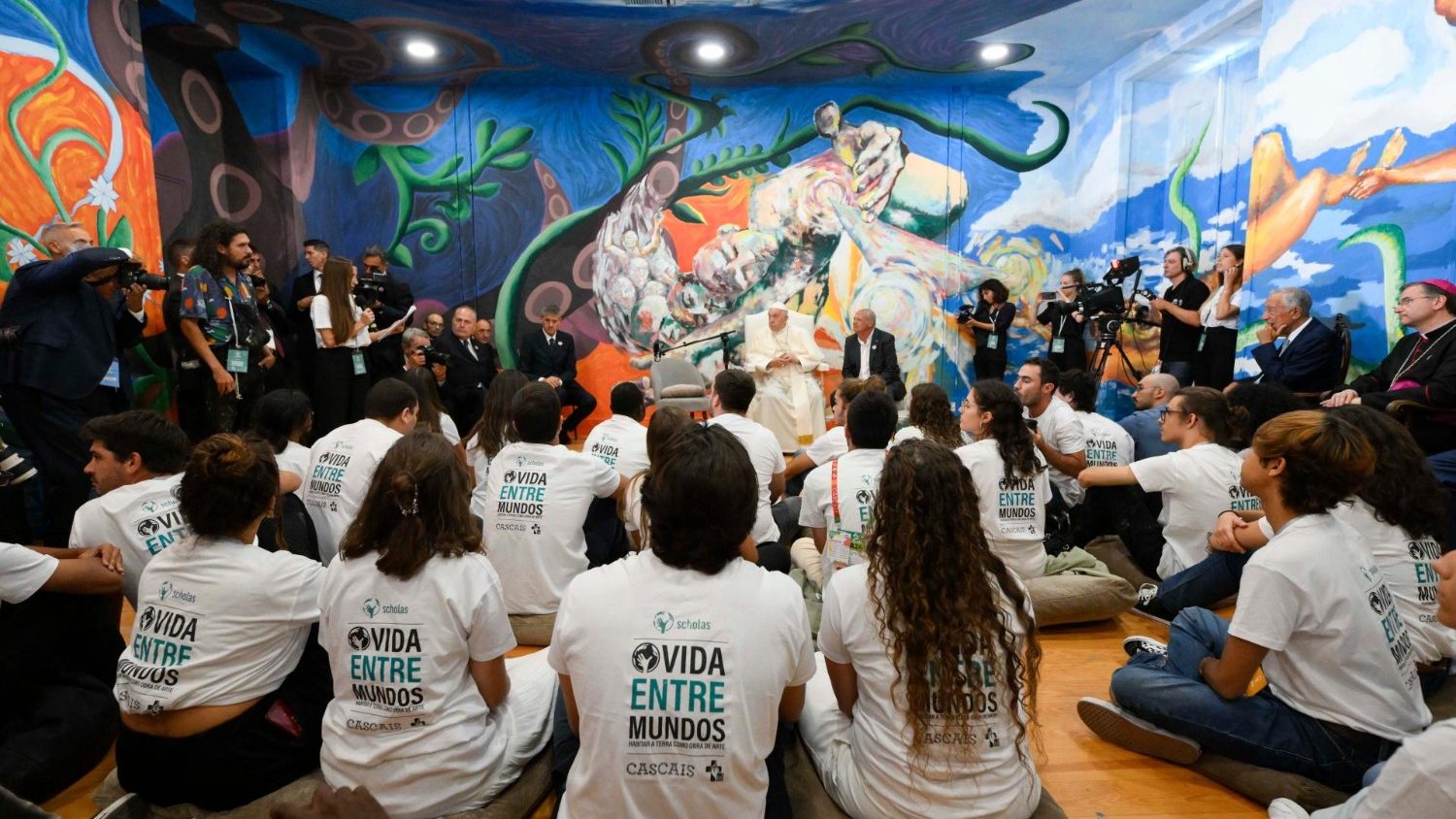Paulo, Mariana and Aledje were amongst the protagonists on Thursday at an event attended by Pope Francis and members of Scholas Occurrentes, at the Pontifical Foundation’s Portuguese headquarters in Cascais, south of Lisbon.
They are three of the tens of thousands of young people, of different faiths and backgrounds, who belong to the worldwide Scholas movement for education, founded in 2013 and inspired by Pope Francis’ call for the transformation of global education in the spirit of encounter and inclusion.
The Pope listened to the testimonies of the three young students of different confessions – an Evangelist, a Catholic and a Muslim – and responded to each of them.

The transformational power of chaos
The Holy Father encouraged them on their shared journey in a broken world, rocked by chaos and marked by division, and directed them to continue in their effort to help create a world where fraternity and care for each other will bring harmony.
Much of the conversation stemmed from the contemplation of a colourful wall painting decorating the hall in which the meeting took place. The “chaos” depicted in the painting, the Pope said, reflects the reality of the cosmos and the lives of each of us.
“Life is transformed by the chaos of life and the cosmos,” he noted, but said it is up to each of us to find a path of truth and beauty.
After having been handed a paintbrush, the Pope added the conclusive touch to the Scholas mural, painting a circular stroke in green paint that blended seamlessly into the whole.
He too had a painting, a gift for the students consisting of an ancient oil on wood artwork in a very different style, depicting the Good Samaritan.
Pointing to the representation, he invited those present never to be afraid of “getting their hands dirty” and to always be there for those in need. “Only by getting your hands dirty,” he said, “will you keep your hearts clean.”
“Only by getting your hearts dirty will you keep your hearts clean.”

The crucial role of education
The Cascais event represented a truly “informal” occasion for the Pope and the young people whom he blessed as a young singer filled the air with the melancholic notes of Fado, a symbol of Portuguese culture and tradition, inscribed in UNESCO’s Cultural Heritage of Humanity.
His visit to the Scholas community came on the heels of his meeting with students at the Catholic University of Portugal, on the day in which he has chosen to dedicate attention to the need for a new educational model that goes beyond borders and promotes fraternity and sharing in a world where everything is connected.

Source: vaticannews.va





